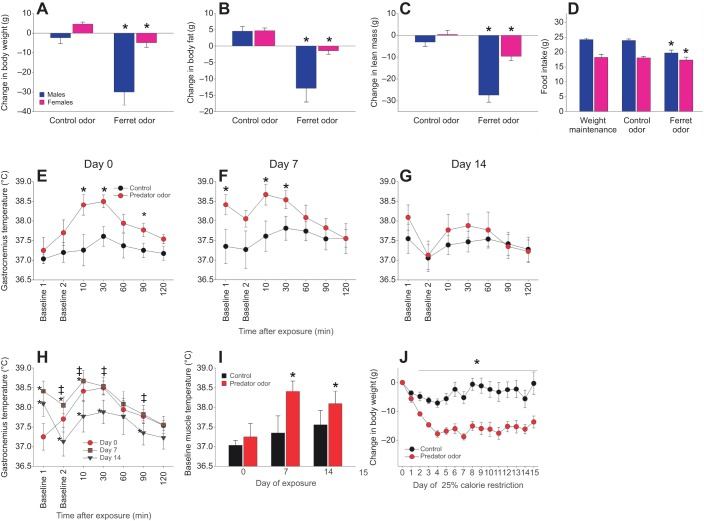Fig. 4.
Chronic exposure to predator odor induces weight and fat loss. (A–D) Rats were subjected to weight-maintenance feeding during 7 days of continual exposure to control odor followed by 7 days of ferret odor. Compared with the pre-exposure weight-maintenance condition, significant loss of weight (A), adiposity (B) and lean mass (C) was seen after predator odor exposure; (D) the decrease in food intake associated with predator odor exposure was more pronounced in male (n=7) than in female (n=5) rats. *Change from weight-maintenance feeding, different from control exposure. (E–J) Muscle thermogenic response to chronic exposure to predator odor (n=5) or control odor (n=5) in rats undergoing 25% calorie restriction for 15 days. Relative to day 0 (E), habituation of the muscle thermogenic response was not seen on day 7 (F) but was evident on day 14 of exposure (G). *Predator odor>control. (H) While 14 days of predator odor exposure led to lower acute muscle heat induction (thermogenesis), (I) baseline muscle temperature remained significantly elevated in predator odor-exposed rats after 7 and 14 days of continuous exposure. *Different from day 0; ‡different from day 14. (J) Rats chronically exposed to predator odor lost significantly more weight during 25% food restriction compared with control rats. *Predator odor>control.

